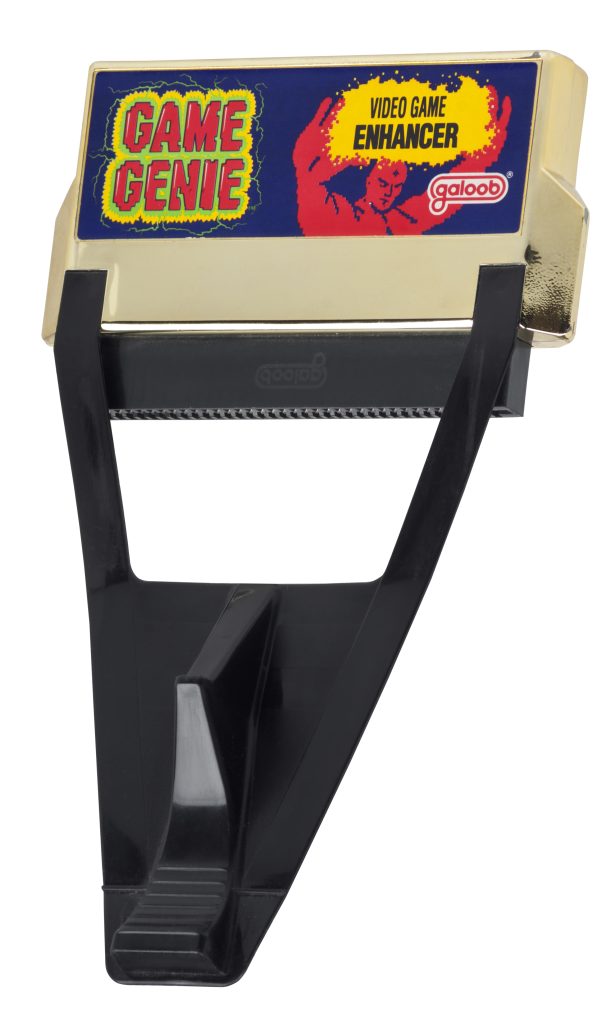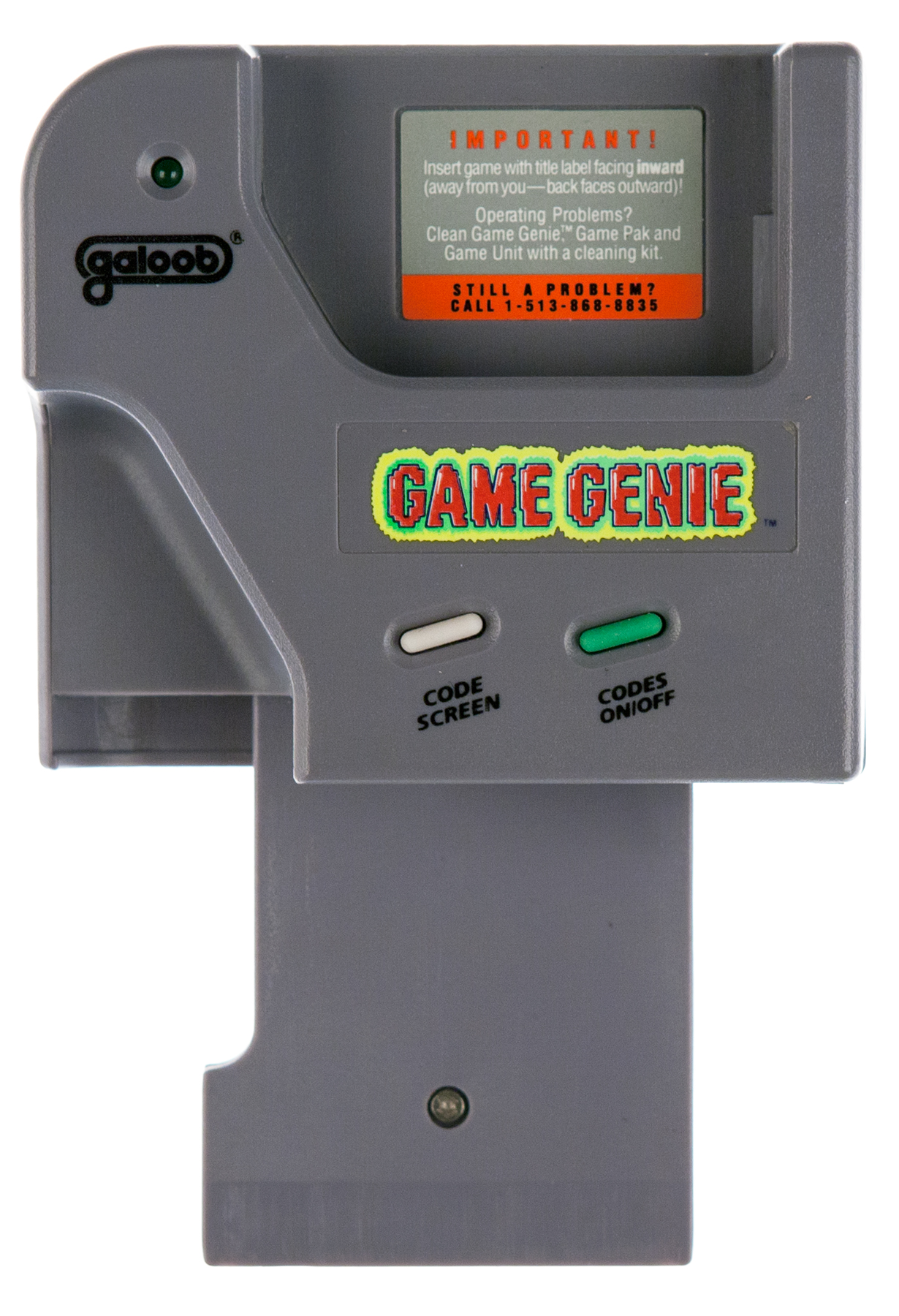The Game Genie, introduced in the early 90s, represented a significant shift in the gaming landscape. Originally designed by Codemasters and sold by Camerica and Galoob, this device offered players an unprecedented ability to modify their gaming experience. Advertised as a “game enhancer,” the Game Genie allowed players to add lives, access unused assets, and manipulate various game aspects, fundamentally altering the way games were played.
Featured photo of Game Boy Game Genie By Thngs - Thngs.co, CC BY-SA 4.0, https://commons.wikimedia.org/w/index.php?curid=50518704
The Game Genie’s Technical Underpinnings
The Game Genie functioned by intercepting communication between the game cartridge and the console, modifying game data at startup. It enabled players to enter codes that altered specific game aspects, such as the number of lives or level settings. These codes targeted specific memory locations within the game’s code, allowing for changes in gameplay elements. This simple yet effective mechanism captivated gamers, offering them a new realm of possibilities within their favorite games.

Nintendo vs. Galoob: A Legal Showdown
Despite its popularity, the Game Genie faced significant legal hurdles. Nintendo, concerned about the unauthorized modification of its games, sued Galoob, the Game Genie’s distributor. The lawsuit argued that the Game Genie created derivative works, thus violating copyright laws. However, in a landmark decision, the courts ruled in favor of Galoob, stating that the Game Genie enhanced games without replacing or creating new works. This verdict set a precedent in the gaming industry regarding game modifications.
A Lasting Impact on Gaming
The Game Genie’s influence extended beyond its immediate commercial success. It inspired the development of other game modification devices and influenced game developers to incorporate cheat systems in their games. Despite ceasing production in the 90s, the Game Genie’s legacy lives on in modern gaming, with emulators and contemporary games still supporting Game Genie codes.
The Game Genie exemplified a unique era in gaming history, where the boundaries of game design and player agency were redefined. Its contribution to the gaming industry remains a topic of fascination and study among gaming enthusiasts and historians alike.
The Game Genie’s Influence on Game Development and Culture
Game Development Evolution
Post-Game Genie, game developers, including Codemasters, began integrating cheat systems directly into their games. Titles like TOCA Touring Car Championship and Colin McRae Rally are examples of games that incorporated such systems, acknowledging the players’ desire for control over their gaming experience. This trend highlighted a shift in game design philosophy, recognizing the value of player autonomy and customization.
Cultural Impact and Community Engagement
The Game Genie catalyzed a significant cultural movement within the gaming community. Players began sharing codes, contributing to a burgeoning culture of collaboration and information exchange. This community-driven aspect of gaming, fostered by the Game Genie, laid the groundwork for future online gaming forums and communities.
Technological Advancements and Legal Precedents
The Game Genie’s introduction was not only a technological breakthrough but also a catalyst for legal discussions in the gaming industry. The device’s ability to modify game data without permanently altering the game code raised questions about copyright and user rights, influencing future legal frameworks around gaming modifications.
The Enduring Legacy of the Game Genie
Despite its discontinuation, the Game Genie’s influence persists. Emulators and modern gaming consoles still support Game Genie codes, illustrating the device’s lasting impact. The concept of modifying game experiences lives on, evolving with technological advancements but rooted in the foundation laid by the Game Genie.
Game Genie’s Legacy in Modern Gaming
The Resurgence of Retro Gaming
The Game Genie’s legacy is particularly evident in the current resurgence of retro gaming. Nostalgia-driven gamers, seeking to relive their childhood experiences, often turn to the Game Genie to revisit classic games with a new twist. This trend underscores the timeless appeal of classic games and the desire for enhanced playability.
Influence on Modern Game Cheats and Modifications
The concept of game modifications, popularized by the Game Genie, has evolved into a significant aspect of modern gaming culture. Today, games often include built-in cheat codes, Easter eggs, and modification options, reflecting the Game Genie’s influence on game design and player expectations.
The Future of Game Modifications
Looking forward, the Game Genie’s impact suggests a continuing trend towards customizable gaming experiences. As technology advances, we may see even more sophisticated tools for game modification, further blurring the lines between developer intent and player control.
The Game Genie, a pioneering force in the gaming world, has left an indelible mark on the industry. Its legacy lives on, shaping how games are played, designed, and experienced.
Conclusion: The Game Genie’s Place in Gaming History
Reflecting on the Game Genie Phenomenon
The Game Genie was more than just a cheat device; it was a cultural phenomenon that reshaped the gaming landscape. Its influence extended beyond the realm of cheat codes, impacting game development, legal precedents, and the gaming community.
The Game Genie in Retrospect
Looking back, the Game Genie represents a pivotal moment in gaming history. It challenged traditional notions of gameplay and player interaction, setting the stage for the customizable and player-centric gaming experiences we see today.
The Game Genie’s story is a testament to innovation and its far-reaching effects in the world of gaming, a narrative that continues to intrigue and inspire.
